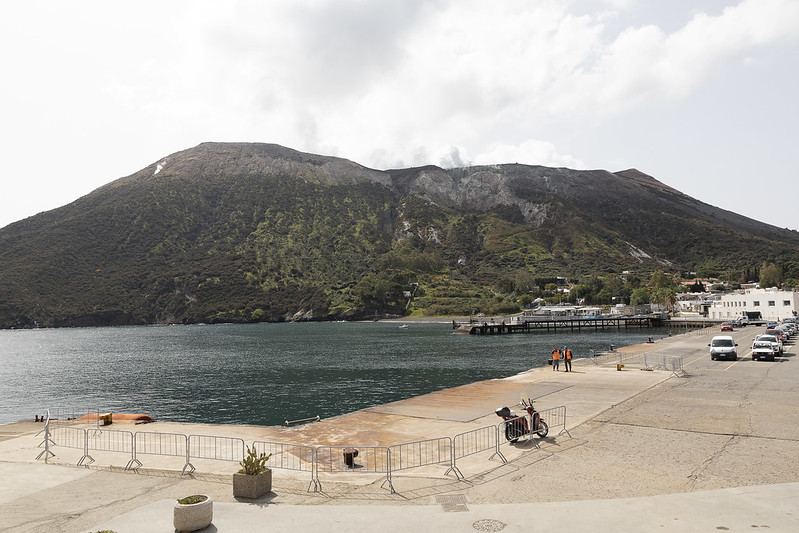What to know - Vulcano

The Vulcano island is part of the Aeolian archipelago and represents the emerged part of an active volcano.
The last eruption occurred from 1888 to 1890. Since then, the volcano shows intense activity of high-temperature gas and steam emission from La Fossa crater and in the vicinity of the Porto di Levante.
On Vulcano a system of ongoing monitoring of geophysical and geochemical parameters is active, the variations of which allow the detection of possible changes in the state of activity.
However, some dangerous phenomena, such as phreatic explosions (emissions of steam, water, volcanic rocks of various sizes), can occur at any time without precursor signals.
Vulcano eruptions can be of two types: effusive and explosive. The last can vary in intensity, repeat cyclically, and last for years. In case of an eruption similar to the one from 1888 to 1890, volcanic products would hit the cone slopes and Volcano Porto.
The most frequent phenomenon is the release of volcanic gases from the subsurface and fumaroles. In addition, phreatic explosions, earthquakes, landslides, and tidal waves can also occur. Therefore, it is essential to know the relevant correct behaviors to adopt.
The "alert level," indicating the state of volcano activity (green, yellow, orange, red), is established according to the monitoring and ongoing phenomena.
According to the different alert levels, the plan outlines the different operational phases (attention, pre-alarm, alarm) that set the actions of the Municipality of Lipari, the Sicilian Region, the Civil Protection Department, and the structures of the National Civil Protection Service to protect the population. More specifically, the alarm phase includes the evacuation of inhabitants from the island.
The IT-alert public warning system for volcanic risk at the Volcano island is used to give early warning of a potential upcoming eruption with the resulting need to take civil protection actions, including the evacuation of the population living in the red zone, provided for in the plans. When the operational phase of "alarm" is activated, an IT-alert message is sent to the cell phones of those located on the island to inform them of the potential danger. It is, therefore, essential to know what to do right away.
- Volcanic gases emitted on the island can harm human health and animals. Among them, carbon dioxide (CO2) is odorless and colorless.
- Ordinances of the Mayor of Lipari may restrict access to some areas of the island, while Harbor Master's ordinances regulate bathing.
- Italy has equipped itself with a public warning system, IT-alert, for direct information to the population, which broadcasts messages to cell phones in a given geographical area in case of imminent or ongoing major emergencies or disasters, including an upcoming eruption at the Vulcano island. Remember that the IT-alert system has some limitations. For more information, go to www.it-alert.gov.it/en.